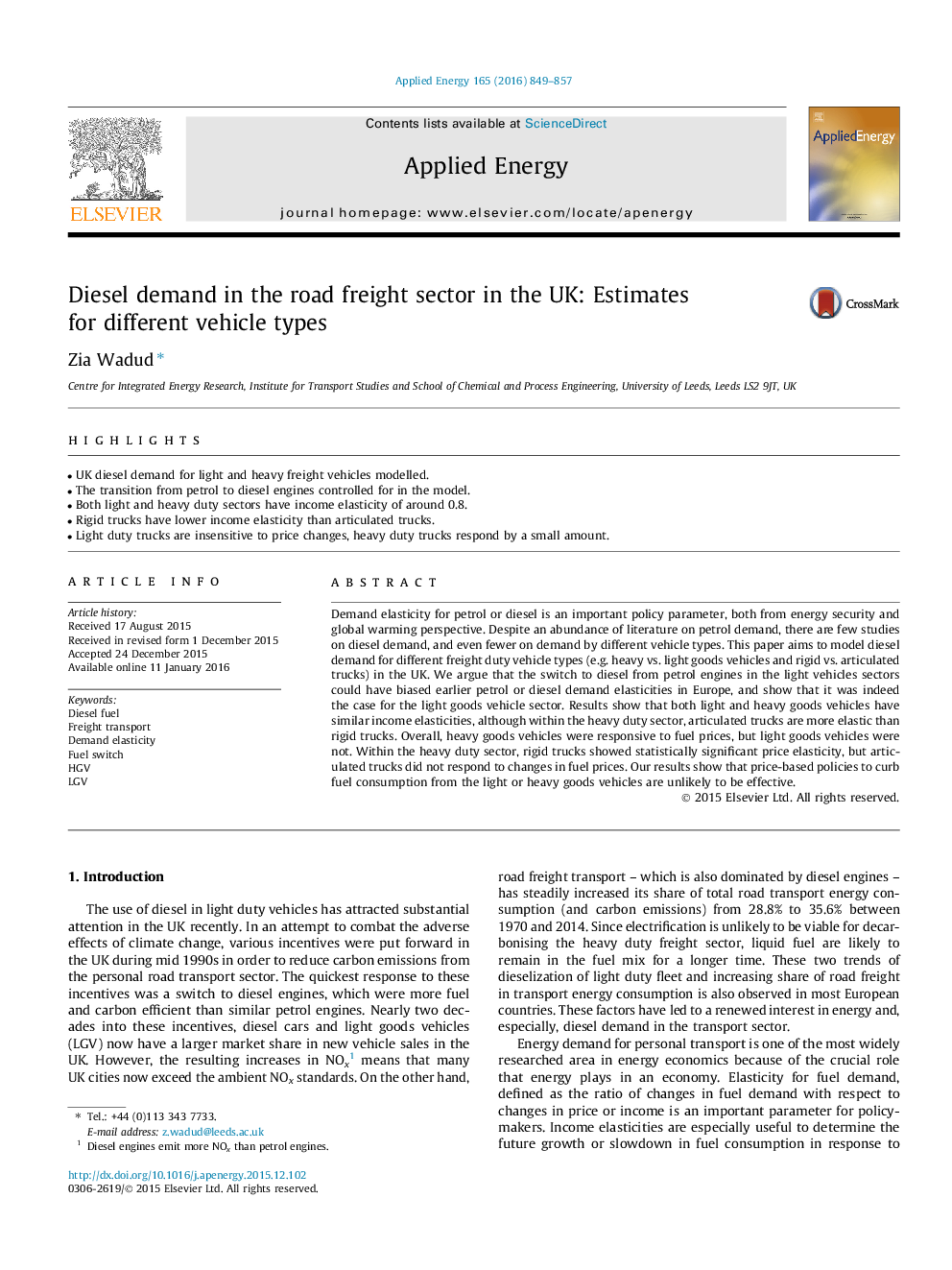| Article ID | Journal | Published Year | Pages | File Type |
|---|---|---|---|---|
| 6684089 | Applied Energy | 2016 | 9 Pages |
Abstract
Demand elasticity for petrol or diesel is an important policy parameter, both from energy security and global warming perspective. Despite an abundance of literature on petrol demand, there are few studies on diesel demand, and even fewer on demand by different vehicle types. This paper aims to model diesel demand for different freight duty vehicle types (e.g. heavy vs. light goods vehicles and rigid vs. articulated trucks) in the UK. We argue that the switch to diesel from petrol engines in the light vehicles sectors could have biased earlier petrol or diesel demand elasticities in Europe, and show that it was indeed the case for the light goods vehicle sector. Results show that both light and heavy goods vehicles have similar income elasticities, although within the heavy duty sector, articulated trucks are more elastic than rigid trucks. Overall, heavy goods vehicles were responsive to fuel prices, but light goods vehicles were not. Within the heavy duty sector, rigid trucks showed statistically significant price elasticity, but articulated trucks did not respond to changes in fuel prices. Our results show that price-based policies to curb fuel consumption from the light or heavy goods vehicles are unlikely to be effective.
Related Topics
Physical Sciences and Engineering
Energy
Energy Engineering and Power Technology
Authors
Zia Wadud,
